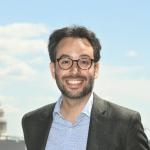The WTO texts are often made out to be objectively-grounded and rigorously-derived works of a technocratic gentry. The rules of the multilateral trading system have endured the test of time not only because they have conferred security and predictability on the global economic order, but, moreover, because they are perceived as “objective.” But, where do the rules of international trade actually come from and can they, by today’s standards, be characterized as objective? The current trade regime’s legitimacy stems largely from the conviction that its rules have been construed and live on as an objective form of economic knowledge. Is this belief accurate? This paper makes the case that international trade rules are perceived as objective because they are dogmatic, not because they are the embodiment of an incontrovertible technical episteme. It illustrates how the law of the multilateral trading system cannot be accounted for in purely utilitarian terms, in an effort to cast light on the specific rules that involve certain doctrinaire perceptions. By tracing the annals of legal and economic thinking as they relate to the postwar global economic order and placing the practice of law around the WTO in context with modern economic thinking, this paper will attempt to reveal the extent to which international trade law can be referred to as “economic.”
The discourses around the multilateral trading system have pushed the false idea, from the standpoint of modern economics, of WTO law as a neutral, technical, and objective law. The main reason why this false consciousness has developed and why it continues to be so pervasive today, is that the average person engaged in the practice of international trade law is neither required nor qualified to reflect on the complex political and economic foundations of international trade rules, much less expected to answer for the social implications that flow from them. This is especially true of international lawyers, whose dominantly positivist training creates an aversion to what Hans Kelsen termed “methodological syncretism,” or to what Oliver Wendell Holmes called “the rational study of the law.” The average trade practitioner typecasts the law of international trade as economic, because the average practitioner lacks the training and language to articulate how “ideological” it is. The WTO’s normative program has become so entrenched in trade practitioners’ understanding of international trade, that it has made it close to impossible to fathom an alternative way of organizing the global economy. The contribution that this paper seeks to make, therefore, is to help overcome the ideology that makes it difficult to reimagine the world economic order of today. Only by removing the ideational obstacles that are pervasive among the practitioners who are best positioned to transform the global political economy, will we be able to have a frank and productive discussion about how to put together a version of global economic governance that works for all.




